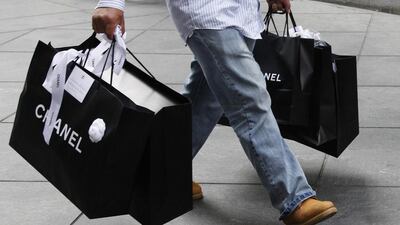Imagine your reaction as a parent if you were to witness 100 peckish five-year-olds brought into a room where 100 sandwiches were stacked on a table. They line up for their snack, each clutching a paper plate, and then watch – a little bemused – as 44 sandwiches are loaded onto the plate of the first child in line. The next eight children are given five sandwiches each. The 21 children who follow are each presented with about half a sandwich. And the remaining 70? They will have to share the remaining sandwiches between them.
No parent I know would tolerate such a monstrous spectacle; yet, that’s exactly how our planet’s wealth is distributed according to a report out last week – not from some socially minded think tank, but from Credit Suisse, the global financial services firm that makes its money by growing the wealth of the already rich.
The red flag being raised by Credit Suisse is not the result of some moral pang or improbable conversion to socialism; it’s the red-flag-as-danger signal, designed to warn policymakers of the threat of economic recession posed by such startling inequalities.
The report noted that the ratio of wealth to household income in the US is the highest it has been since the eve of the Great Depression. “This is a worrying signal given that abnormally high wealth income ratios have always signalled recession in the past,” it warned.
Policy makers content themselves with the idea that the recession that accompanied the 2008 financial meltdown is behind us, even if the reality for millions of ordinary working- and middle-class people suggests otherwise. But Credit Suisse’s findings concur with recent warnings by a number of other studies and analysts: that the post-2008 “recovery” has mainly occurred in the already bloated bank accounts of the super-rich. A top Wall Street investment banker warned last December that some 95 per cent of the wealth gains in the US economy since 2009 had gone to the richest one per cent of Americans.
Curiously, the Marxist view that the unequal distribution of capitalism’s rewards creates a potentially catastrophic drag on the economy has lately become conventional wisdom among such deeply capitalist institutions as the IMF and ratings agency Standard & Poor’s.
There are a number of reasons for this, but the key one is simple: rich people don’t buy enough. A few Lamborginis, lavish holidays, third or fourth homes, exclusive designer outfits, racehorses and so on don’t translate into the kind of demand that keeps an economy humming. Sustaining consumer demand to fuel economic growth requires that hundreds of millions of people have enough to buy their basics every week, and that their incomes are also growing sufficiently to fund the purchase of more durable stuff. It doesn’t help manufacturers of expensive new TVs, for example, if only the top one or five per cent of the population is able to afford one; they thrive when the top 40 or 50 per cent of the population is able to buy a new TV.
The current inequality trend is decades old, but its effects were long mitigated by the vast oversupply of easy credit. Americans kept buying TVs and so much more with money they didn’t really have. The availability of credit has tightened sharply since 2008, and is unlikely to fuel a consumption boom for the foreseeable future.
The problem of depressed demand is unlikely to be resolved at all by the workings of the market, which left to its own logic will continue to concentrate most wealth in the hands of a tiny few.
Capitalism has always required a state to ensure the conditions in which it survives and prospers – from providing infrastructure, laws and the means of exchange to providing basic security and the well-being of the population. If those children in the opening scenario were left hungry with no hope of eating, sooner or later they would simply take sandwiches from those who were hoarding them. Capitalist states have always taken some of the wealth the market has put in the coffers of the few and redistributed it both for the provision of basic infrastructure and services and to ensure that the population is at least basically fed, housed and educated to keep the system running.
And for much of the last century, it was common for capitalist states to step in and substitute for weak consumer demand through public spending to stimulate the economy. But a bipartisan political consensus since the Reagan era on the terms of acceptable fiscal and economic policy has strictly limited the possibilities of public spending – not least by sharply curbing the ability of the state to tax the wealthy to fund measures to keep the entire system on track.
There’s an absolute consensus in Washington on economic policies that effectively precludes fixing what everyone from the Pope to the IMF is warning is a slow-moving economic catastrophe.
Politicians are unlikely to challenge a consensus against increased taxation of corporations and the rich, because it is corporations and the rich that set the limits on policy in a political system whose players are essentially selected by their ability to garner hundreds of millions of dollars in campaign contributions. It may require tax rises to fix the deeper problems ailing America’s economy, but the monied interests on which the politicians of both parties are dependent want to pay less tax, not more.
America’s economy looks increasingly like that room full of hungry children, but with the handful of children who have piled up most of the sandwiches having promised the 10 biggest children in the room a quarter of a sandwich each to beat up any of the others who challenge the rules. The US could be in for a rough ride in the years ahead.
Tony Karon teaches in the graduate programme at the New School in New York

